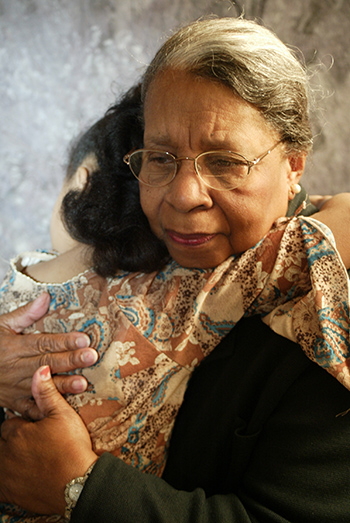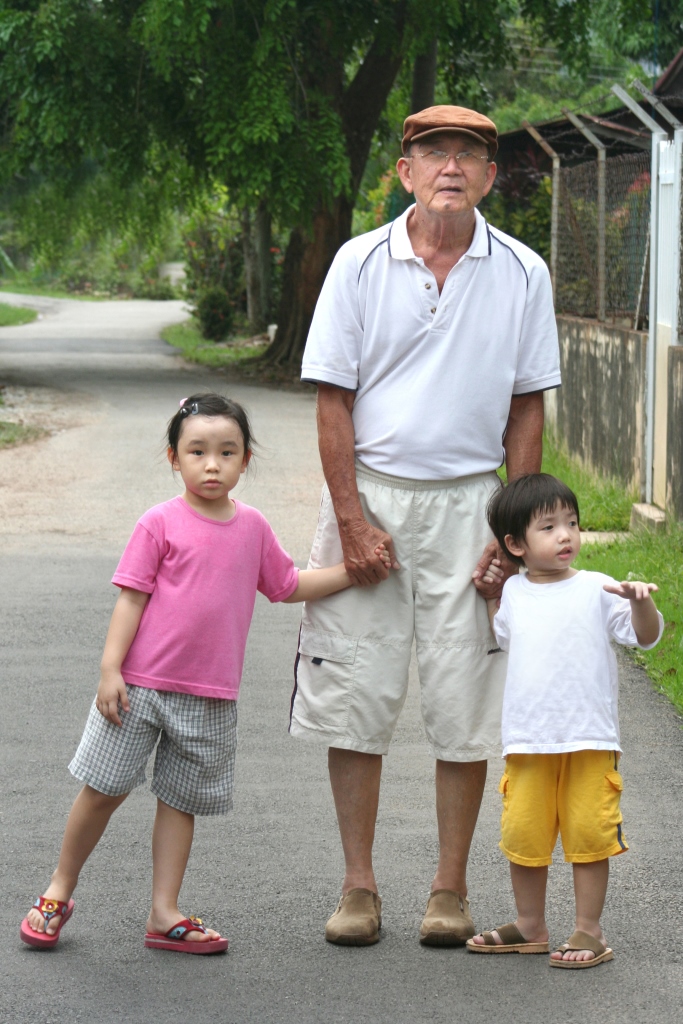Children aren’t the only ones who suffer when mom or dad goes to prison.
 When fathers go to prison, mothers often become the sole caregivers of the children. Many of these mothers are single heads of households, while some live with their own parents in multigenerational households.
When fathers go to prison, mothers often become the sole caregivers of the children. Many of these mothers are single heads of households, while some live with their own parents in multigenerational households.
When mothers go to prison, most children go to live with grandparents. These grandparents, who have already raised one generation, must now adjust their lives and become the primary caregivers of another generation.
The caregiver’s job is a difficult one with many new realities and hardships. Often they need to perform as both mother and father to a child with a parent in prison, teaching skills and caring for them in ways the absent parent would have done.
How children cope with the absence of their parents depends on the ability of their caregivers to protect and nurture them. The truth is, many caregivers are overwhelmed, and the incarceration of the children’s parents is yet another stressful event in their lives.
FINANCIAL IMPACT OF INCARCERATION ON CAREGIVERS
Financial problems are extremely common for caregivers. Consider these key factors:
- Family income averaged over the years a father is incarcerated is 22 percent lower than family income was prior to the father’s incarceration. (Western and Petit)
- Seventy percent of children’s caretakers are over the age of 50. About 55 percent of children live with a caregiver who doesn’t have a spouse. And 19 percent live in households with four or more children living there as well. (Hairston)
- Caregivers may have to make the decision to leave their jobs in order to take better care of the children. Those caregivers who are no longer working often exhaust their retirement savings in order to pay for the children’s needs. (La Vigne)
- Forty-one percent of children in kinship care live with families with incomes less than 100 percent of the federal poverty level. (Hairston)
In additional these financial pressures, grandparents and other kin caregivers may experience their own health limitations and issues. Now, they must also cope with finding ways to share space in their home and stretch already limited resources.
 EMOTIONAL IMPACT OF INCARCERATION ON CAREGIVERS
EMOTIONAL IMPACT OF INCARCERATION ON CAREGIVERS
It is not unusual for caregivers to struggle with anger and resentment toward the incarcerated parent. At the same they are trying to support the child’s relationship with the parent.
Here are some additional sources of stress on the family:
- The parent in prison may still want to have an active parenting role and may not always see eye to eye with the caregiver. This sends mixed messages to the child and causes friction in these relationships. (Hairston)
- Sometimes caregivers use not taking the children to visit as a way to “punish” the parent for getting themselves locked up and causing so much hardship on the family. (De Masi)
- Mothers left to single-parent their children often feel a strong need to make a new life for themselves. (De Masi) Those who are incarcerated attain the 50 percent divorce rate experienced by the free-world population in one-third of the time. (Western)
Caregivers of the children of incarcerated parents often feel judged by others and forced to hide from the shaming gaze of people around them. This leads them to withhold information and avoid connections that may help them. Many caregivers report being estranged from extended family and isolated from support systems.
As Christians, it is not up to us to judge the families of the incarcerated. It is only for us to love those who are hurting–to listen, show that we care, and help the children of the incarcerated and their caregivers rebuild their lives.
Some of the information presented in this article came from Prison Fellowship®’s Family Embraced Tool Kit.
REFERENCES CITED
- De Masi, Mary and Cate Bohn. Annie E. Casey Foundation. Children With Incarcerated Parents: A Journey of Children, Caregivers and Parents in New York State. 2010.
- Hairston, Creasie. Annie E. Casey Foundation. Kinship Care When Parents Are Incarcerated: What We Know, What We Can Do. 2009.
- La Vigne, Nancy, Elizabeth Davies, and Diana Brazzell. Urban Institute Justice Policy Center. Broken Bonds Understanding and Addressing the Needs of Children with Incarcerated Parents. 2008.
- Western Bruce and Petit Becky. The Pew Charitable Trusts. Collateral Costs: Incarceration’s Effect on Economic Mobility. 2010.
- Western Bruce. Princeton University Department of Sociology. Incarceration, Marriage, and Family Life. 2004.
DOWNLOAD THIS RESOURCE
Download this resource. Once downloaded, you can print, save, or share the pages with others.
DOWNLOAD